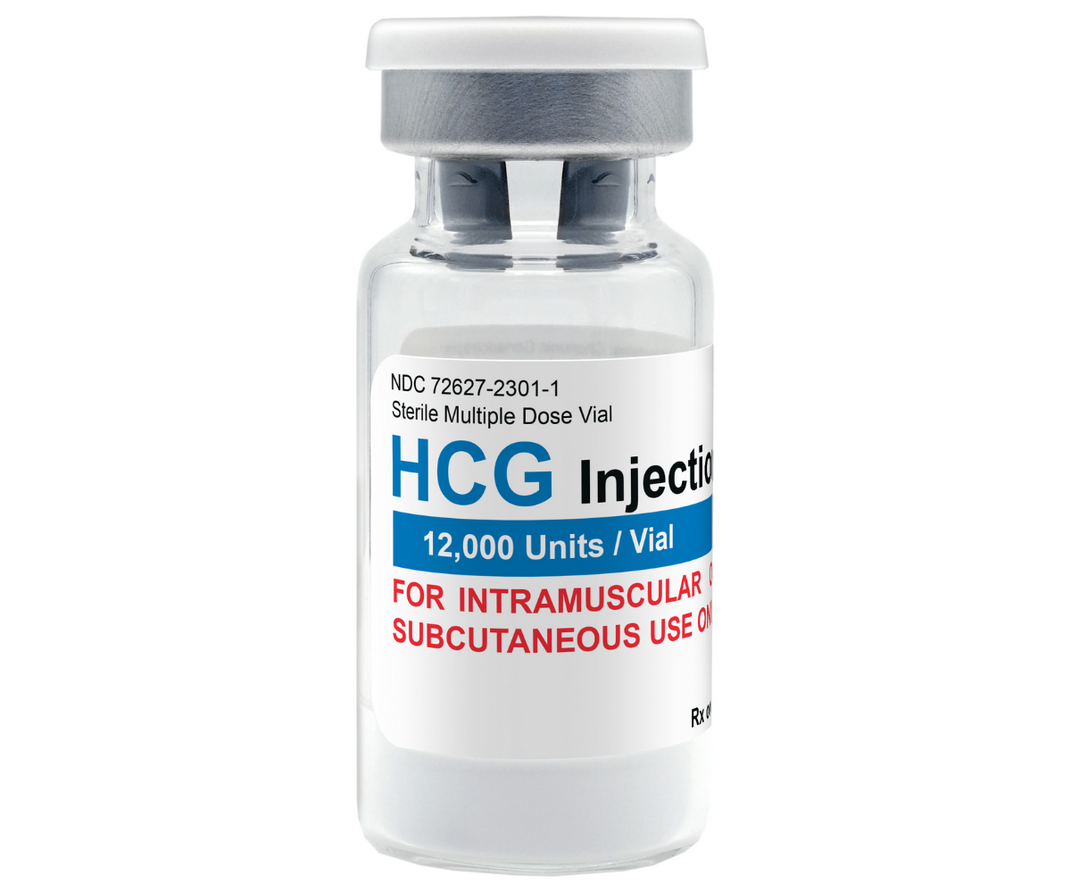$25.00
HCG is a hormone with important roles in reproductive health and hormone regulation. It is primarily used in fertility treatments to induce ovulation in women and stimulate testosterone production in men with hypogonadism. It should only be used under the guidance of a healthcare provider for approved medical purposes due to potential risks and legal considerations. Using HCG for weight loss purposes outside of medical supervision is strongly discouraged and can be dangerous.
HCG
HCG, or Human Chorionic Gonadotropin, is a hormone produced naturally during pregnancy. It plays crucial roles in both men and women beyond pregnancy-related functions. Here’s an overview of HCG, its uses, mechanisms of action, and considerations:
Uses of HCG
- Fertility Treatment: HCG is used in assisted reproductive technologies, such as in vitro fertilization (IVF) and intrauterine insemination (IUI), to induce ovulation in women who do not ovulate regularly or have infertility issues related to hormonal imbalances.
- Treatment of Hypogonadism: In men, HCG is sometimes used to stimulate the testes to produce testosterone. It is used as part of hormone replacement therapy (HRT) for men with low testosterone levels due to conditions like hypogonadism.
- Weight Loss: Some controversial diets, such as the HCG diet, involve the use of HCG injections or oral supplements in combination with a very low-calorie diet (VLCD) to promote rapid weight loss. However, this use is not supported by scientific evidence and is considered unsafe by many health professionals.
Mechanism of Action
HCG works by mimicking the action of luteinizing hormone (LH), a hormone produced by the pituitary gland. LH stimulates the ovaries to produce estrogen and progesterone in women and stimulates the testes to produce testosterone in men.
- In Women: HCG triggers ovulation in women by stimulating the release of mature eggs from the ovaries. This is crucial for fertility treatments.
- In Men: HCG stimulates the Leydig cells in the testes to produce testosterone, thereby increasing testosterone levels. This is beneficial for men with hypogonadism who have low testosterone levels.
Administration
HCG can be administered via intramuscular (IM) injection or subcutaneous (under the skin) injection. The dosage and frequency of administration depend on the specific medical condition being treated and individual response. It is important to follow the dosage instructions provided by a healthcare provider.
Side Effects
Common side effects of HCG may include:
- Pain or swelling at the injection site
- Headaches
- Fatigue
- Mood swings
- Ovarian hyperstimulation syndrome (OHSS) in women undergoing fertility treatment, especially with higher doses
Considerations and Contraindications
- Pregnancy: HCG should not be used during pregnancy due to its potential to cause masculinization of female fetuses. It is only used under strict medical supervision in cases of infertility treatment.
- Health Risks: Using HCG for weight loss is not recommended and can lead to serious health risks, including electrolyte imbalances, gallstone formation, and nutritional deficiencies due to the VLCD.
- Legal Issues: HCG is a prescription medication and should only be used under the supervision of a qualified healthcare provider.
Reviews
There are no reviews yet.
Related products
Post Cycle Therapy (PCT)


Be the first to review “HCG”